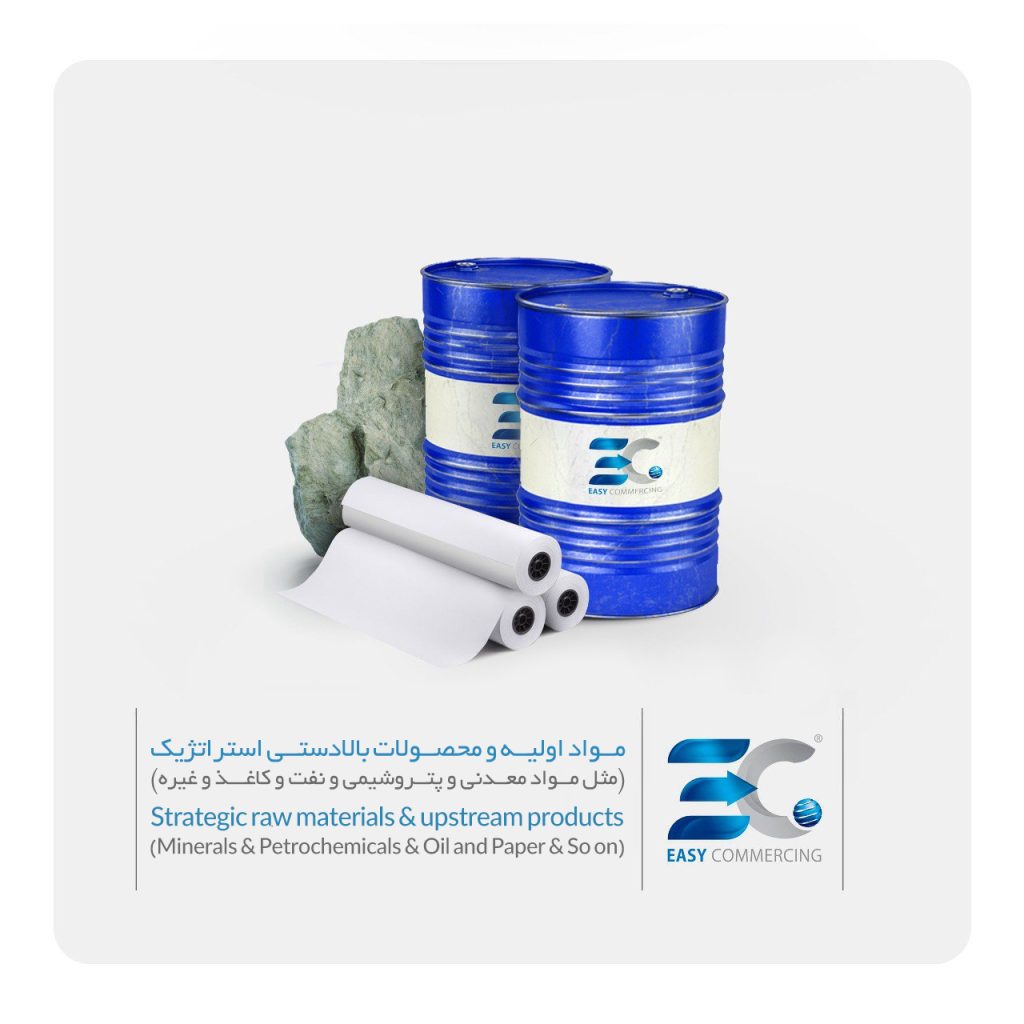Mineral and Petrochemical Raw Materials and Upstream Strategic Products
In many industries, certain raw materials and products play an upstream role, such that the survival of an industry depends on the availability of these raw materials

The Easycommercing , with access to well-researched resources, can offer distinctive services in the supply of upstream raw materials to industrial owners:
- Expertise, evaluation, and needs assessment of required raw materials in chemical, petrochemical, mineral, and cellulosic industries
- Technical and qualitative assessment of raw materials
- Identification and validation of suppliers and introduction to target markets
- Introducing buyers to raw material suppliers
- Examination of export and import barriers, restrictions, and prohibitions in origin and destination countries
- Consultation for obtaining the necessary permits for importing and exporting raw materials
- Follow-up on the issuance of financial and customs documents for commercial operations
Examples in this context include:
- Copper in the form of ore, cathode, and scrap
- Zinc in the form of ore or powder or ingot
- Bitumen in solid and liquid forms
- Petroleum and petrochemical derivatives
- Various types of paper and cellulosic materials
How are upstream raw materials and products different from finished materials?
Raw materials and upstream materials are usually raw or semi-processed materials that are at the initial stages of the production chain, such as ores, metal cathodes, basic petrochemicals, wood pulp or basic chemicals. These materials are used directly in the production of intermediate or finished products.
What industries depend on upstream raw materials? The following industries are most dependent
Petrochemicals and refineries
Steel and non-ferrous metals
Paper and cardboard production
Pharmaceuticals and healthcare
Automotive, construction and energy
What are the most common upstream raw materials?
Copper cathode, copper ore
Zinc ore
Natural or refined bitumen
Ethylene, propylene, methanol
Paper pulp, cellulose fibers
Minerals such as bauxite, lime, silica, barite
Are these materials sourced domestically or imported?
Depending on the type of material, some are sourced domestically (e.g. lime, bitumen, iron ore), while many upstream products, especially petrochemicals or certain metals, are sourced through imports from countries such as China, Russia, Oman, Turkey or the UAE.
Are there restrictions on the export of upstream raw materials?
Yes. Some materials are subject to export restriction laws, customs duties, or require specific permits. The requirements vary by country and type of material.
What permits are required to import or export these materials?
Depending on the country and material in question, the following permits are usually required:
Order Registration Permit
Environmental Permit
Certificate of Analysis (COA)
Health or Standard Permit (in some specific cases)
How can the quality of raw materials be ensured?
By using:
Physical and chemical analysis of the product (ASTM, ISO, DIN)
Sampling and testing in an independent laboratory
Supplier confirmation or valid import history
What factors affect the price of upstream raw materials?
World prices of materials (London Metals Exchange, oil, petrochemicals)
Transportation and customs costs
Domestic and regional demand
Trade restrictions and sanctions
What is the difference between a primary buyer and an intermediary in this market?
The primary buyer (End User) is usually a manufacturer who directly uses the material, while intermediaries and traders simply carry out buying and selling operations and make their profit from the difference in market rates.
Is it possible to have a long-term contract for the supply of raw materials?
Yes. Many supplier companies offer quarterly, six-month or one-year contracts for the continuous supply of raw materials at an agreed rate, which is important for price stability and production planning.




